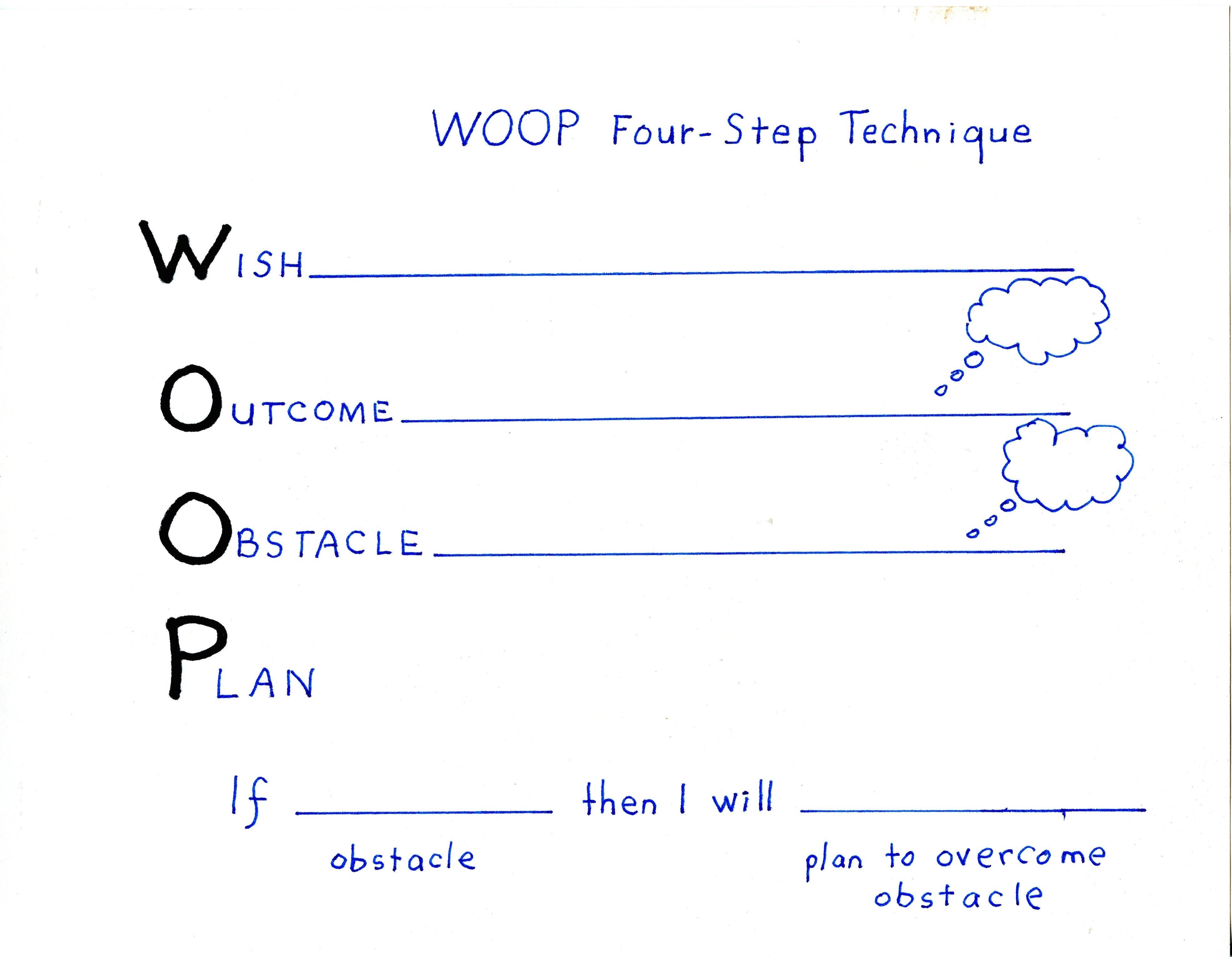We were told for years, by Oprah and others, that positive thinking was the key to achieving our goals.
Now mounting evidence suggests exactly the opposite: that spending a lot of time thinking about your hopes and dreams may make you less likely to put in the work required to actually achieve those dreams. So if positivity is out, what should goal-oriented people replace it with?
This week on the "Psychology Podcast" — a newish venture from cognitive psychologist Scott Barry Kaufman — New York University psychologist Gabriele Oettingen talked about a four-step plan she's come up with from her years of research.
(Oettingen is the author of the new book Researching Positive Thinking: Inside the New Science of Motivation, which Science of Us ran an excerpt of in October.) Oettingen explained the plan to Kaufman; it's a delightful little acronym that spells WOOP.
 |
Wish: First, define your goal."Think about a wish that is dear to you," Oettingen said. "What is it you really want? This could be a big, New Year's–resolution-type ambition, like running a marathon or losing a certain amount of weight, but it doesn't have to be. "I do it every morning for the next day," Oettingen said on the podcast. Your wish doesn't have to be huge; it just has to be real, something you truly want.
Outcome: Here's where a little bit of positive thinking sneaks back in. Keeping your goal in mind, ask yourself: If this wish of mine is fulfilled, what is the best possible outcome? "Very often, it is a feeling," Oettingen said. "You define that outcome, and you imagine that outcome. And once you've imagined the outcome, really immerse yourself in these daydreams."
Obstacles:
The previous step tends to be where people naturally stop — daydreaming feels pretty nice, after all — but Oettingen isn't done yet. After you've let yourself fantasize for a little while about what it will feel like when your goal is accomplished, bring your mind back down to reality. "Then you say, What is it in me that holds me back from experiencing that wish, that outcome? " Oettingen said. "Very often it's an emotion, it's those same old habits. ... And you imagine that obstacle."
Plan:
"Once you've imagined that obstacle," Oettingen said, "you'll understand what you need to do to overcome it." Come up with an if/then plan — if this obstacle pops up, then you'll do X to get around it and keep going after your goal. Oettingen's research has shown that this method has helped people eat more fruits and vegetables; it's also helped students achieve better grades in school, and it has even helped people act less insecure in their romantic relationships. Added but important bonus: It's just kinda fun to say. WOOP!
Article extracted from StumbleUpon 2014.12.09
When someone holds up their hand to start WoopingTrust only movement!
Life happens at the level of events, not of words, trust only movement.
Life happens at the level of events, not of words, trust only movement.
I agree with the author, bring on the "Woop" force
Visualisation is the key; to find the dream and have the inspiration and desire, then you Enthusiasm and Perseverance to keep the world from changing from challenge to a legacy of problems.
Having 30+ yrs experience in Insurance risk management I've seen an enormous cross section of workers, business models and SME operators.
In order to succeed you need to find the trigger that floats your boat, that comes in many shapes and forms, each is different because we are individuals.
Visualisation is the key; to find the dream and have the inspiration and desire, then you Enthusiasm and Perseverance to keep the world from changing from challenge to a legacy of problems.
Having 30+ yrs experience in Insurance risk management I've seen an enormous cross section of workers, business models and SME operators.
In order to succeed you need to find the trigger that floats your boat, that comes in many shapes and forms, each is different because we are individuals.

No comments:
Post a Comment